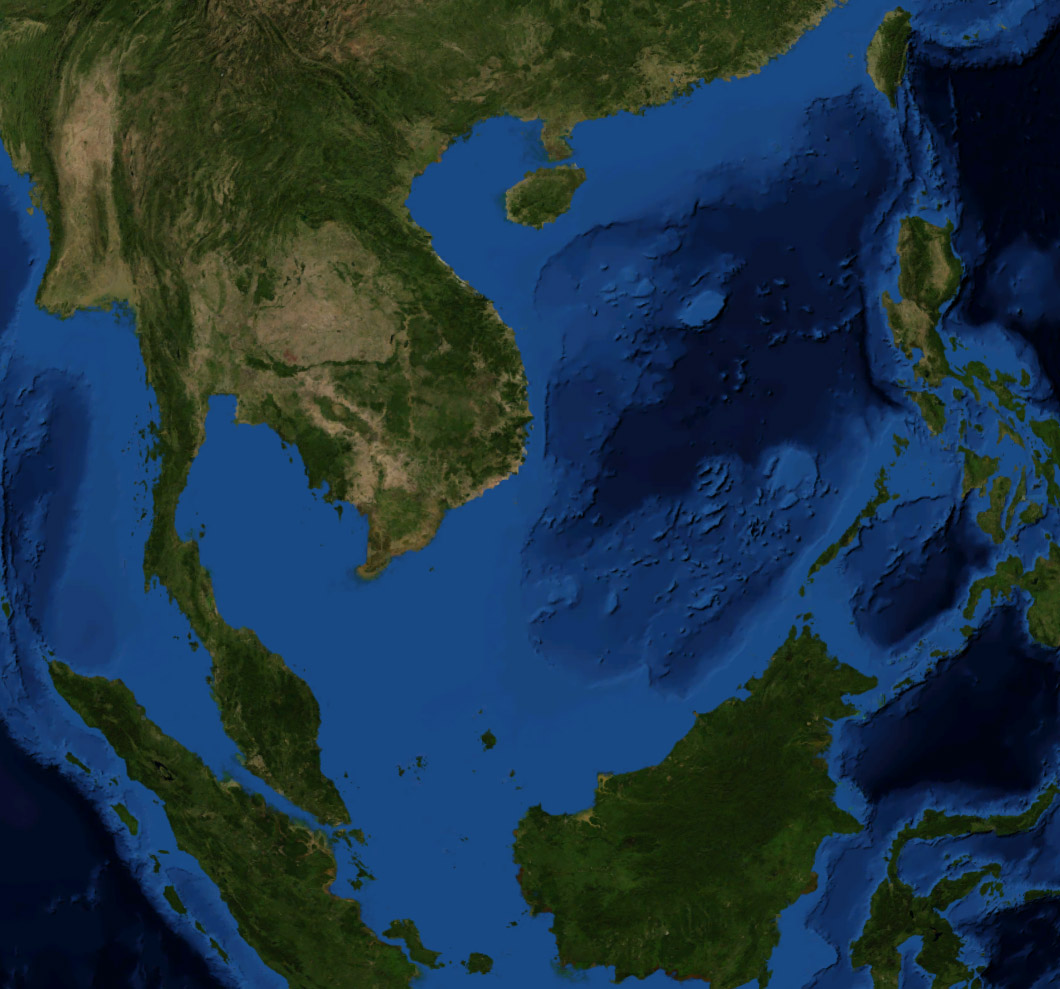Headline
PH utilizing whole-nation-approach in managing WPS issues

FILE: Satellite picture of West Philippine Sea/South China Sea (Photo By Serg!o – Satellite pictures, from NASA World Wind Globe, version 1.4, Public Domain)
MANILA — The Philippine government is utilizing the whole of nation approach in addressing the regional security challenges posed by the territorial disputes in the West Philippine Sea (WPS).
“There is a huge and indispensable task in managing the issues in the South China Sea (SCS) dispute, which we duly recognize as source of instability and tension in the region, and a potential flashpoint,” Department of National Defense (DND) Undersecretary Cardozo Luna said in the forum “National Defense Policy: In Defense of the National Territory”, which was hosted by the Integrated Bar of the Philippines (IBP) Makati Chapter Friday.
Luna represented Defense Secretary Delfin Lorenzana who is on an official trip abroad.
The Philippines continues to exercise its rights in the WPS as a rules-based state, guided by the Constitution and the country’s commitments to treaties, and is undertaking both diplomatic and domestic efforts.
Luna also shared that central to the country’s diplomatic efforts is the Bilateral Consultation Mechanism (BCM) on the WPS, serving as the primary bilateral dialogue mechanism of the Philippines and China on territorial disputes and overlapping maritime claims in the WPS.
The BCM has working groups for political-security; oil and gas; fisheries; and marine scientific research and marine environment protection.
“At the BCM, we are continuously engaging China to discuss the issue. At the same time, we are reaffirming our commitment to international laws, especially to the UNCLOS and to the 2002 ASEAN-China Declaration on the Conduct of Parties in the South China Sea,” the DND official said.
“More particularly, the government has been very consistent and firm in raising alarm and opposition to China’s continued militarization in the South China Sea,” he added.
“Enhancing and harmonizing our internal capabilities, meanwhile, are also at the core of the approach in upholding the national interests in the WPS, the Philippine Rise, and all the rest of our maritime domains,” Luna pointed out.
“Surveillance and enforcement operations will arm the government of the Philippines in lodging diplomatic actions on every Chinese incursion and unlawful action in our maritime domain,” the defense official emphasized, adding that the Armed Forces of the Philippines (AFP) dutifully conducts legitimate and regular maritime and aerial patrols over the WPS.
Repair and rehabilitation of facilities in the Municipality of Kalayaan are also well underway.
The development of facilities in the area, according to Luna, will not only enhance the presence in the WPS, but more importantly, it will aid Filipino fishermen and residents in the area.
“In the same spirit, the government remains committed in further bolstering our defense posture in the WPS through the modernization program of the AFP, and capability upgrades on the part of the Philippine Coast Guard, National Coast Watch System, as well as the Bureau of Fisheries and Aquatic Resources,” the DND official added.
“This is alongside the prioritization of the development and upgrading of bases, facilities, and stations in the area – all with the end view of protecting the Philippine territorial waters and jurisdictional waters,” he pointed out.
Luna also shared that the National Task Force on the West Philippine Sea, headed by the National Security Adviser Hermogenes Esperon, Jr., has been designated by the President to lead the government’s efforts in managing the WPS issue.
Presently, the Task Force is at the helm of a number of legislative agenda geared towards strengthening the country’s claim in the area.
The agenda include investing on credible defense posture, upgrading the facilities and improving the welfare of the community in Kalayaan Island Group, and pursuing robust marine scientific research, among others.
Luna also emphasized the importance of international alliances, especially with the country’s policy intent of de-escalating tensions in the region.
“We recognize that the regional alliance is an integral part in pursuing the country’s interests, which also comes with the profound intention of maintaining our good relationship with our neighboring countries,” the DND official said, noting that the country continues to engage fellow ASEAN members in finalizing the Code of Conduct in the South China Sea.
“The Department is confident that the conclusion of the Code of Conduct of Parties in the South China Sea will be integral in ensuring safety and freedom of navigation in the area,” he added.
“While we maintain that the West Philippine Sea dispute is at the diplomacy level, we have always affirmed that our defenders are committed to defend our territory with whatever means available to them,” the DND official said.
“However, we have to inculcate in the minds of our people that the defense of the state is a duty of each citizen, not just the military,” he bared.
Luna also urged members of the academe and the private sector, especially the lawyers and the members of the IBP, to help elevate the level of domestic and international discourse on the issue.
“We count on you, as lawyers of the country, to herald the efforts of the government in managing the challenges we face in the West Philippine Sea,” he added.





















